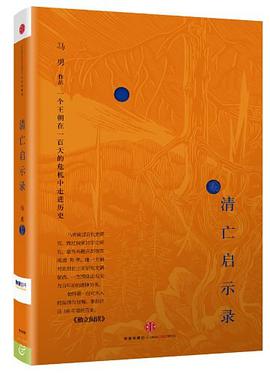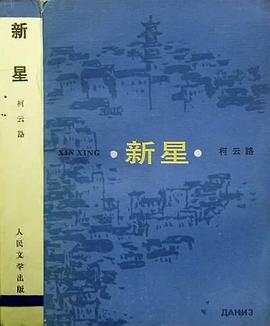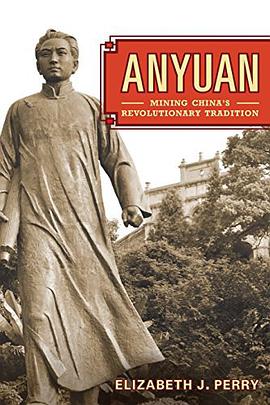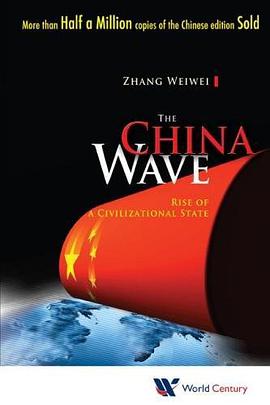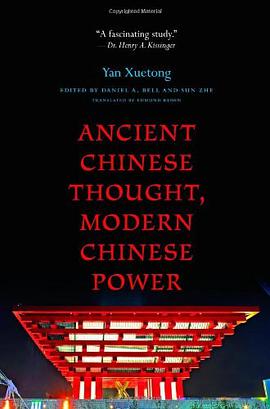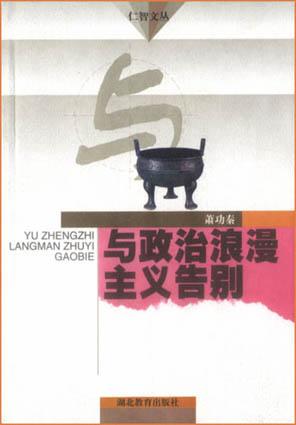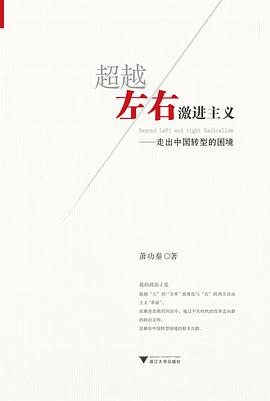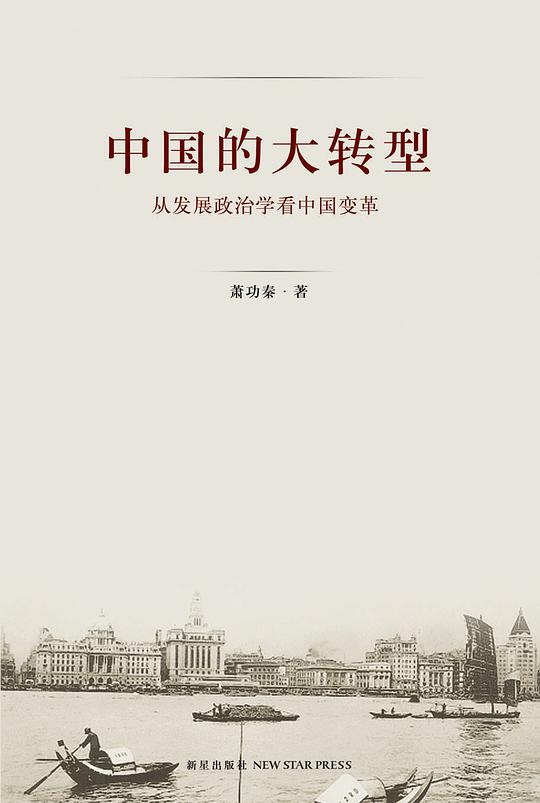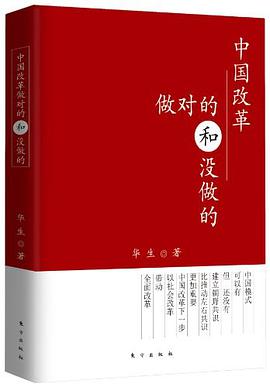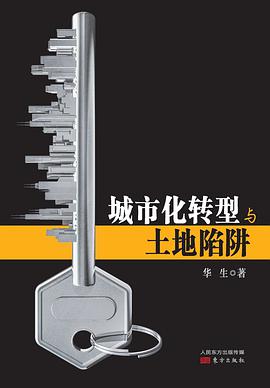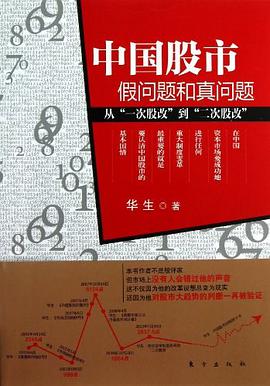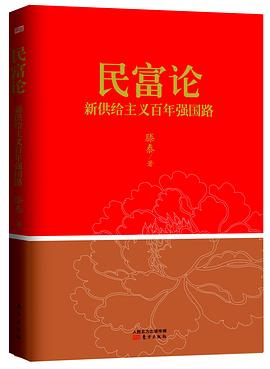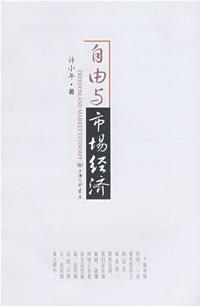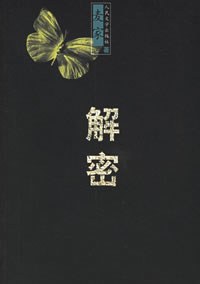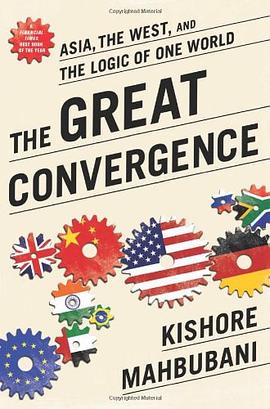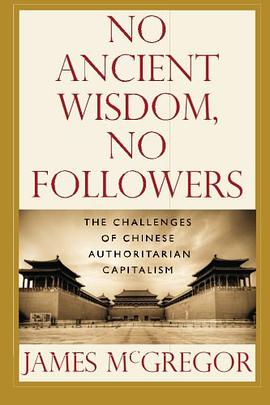中國
Germany and Republican China 豆瓣 Goodreads
作者:
William C. Kirby
Stanford University Press
1984
- 4
本书是一部研究近代中德关系史的名著。作者充分利用美国、德国、中国大陆和台湾的历史档案,论述了1928—1938年中德亲近关系建立后德国对中华民国的政权建设、军事制度、工业经济以及意识形态发展所起到的重要影Ⅱ向,指出了近代中国对现代化模式的选择并不只是接受西方的思想和文化,更在于与西方在政治、经济、军事等领域的实质性接触。美国《亚洲研究》和《太平洋事务》以及香港《二十一世纪》等书评认为,本书是研究中德关系史的一本“难以超越”的著作,是关于中华民国史和中国近代史的一项“极其出色”的成就。
Anyuan 豆瓣
作者:
Elizabeth J. Perry
University of California Press
2012
- 10
How do we explain the surprising trajectory of the Chinese Communist revolution? Why has it taken such a different route from its Russian prototype? An answer, Elizabeth Perry suggests, lies in the Chinese Communists' creative development and deployment of cultural resources - during their revolutionary rise to power and afterwards. Skillful "cultural positioning" and "cultural patronage," on the part of Mao Zedong, his comrades and successors, helped to construct a polity in which a once alien Communist system came to be accepted as familiarly "Chinese." Perry traces this process through a case study of the Anyuan coal mine, a place where Mao and other early leaders of the Chinese Communist Party mobilized an influential labor movement at the beginning of their revolution, and whose history later became a touchstone of "political correctness" in the People's Republic of China. Once known as "China's Little Moscow," Anyuan came over time to symbolize a distinctively Chinese revolutionary tradition. Yet the meanings of that tradition remain highly contested, as contemporary Chinese debate their revolutionary past in search of a new political future.
The China Wave 豆瓣
作者:
Weiwei Zhang
World Century
2012
- 3
This is a best-seller in China and a geopolitical book for our times. As a leading thinker from China, Zhang Weiwei provides an original, comprehensive and engrossing study on the rise of China and its effective yet controversial model of development, and the book has become a centerpiece of an unfolding debate within China on the nature and future of the world's most populous nation and its possible global impact. China's rise, according to Zhang, is not the rise of an ordinary country, but the rise of a different type of country, a country sui generis, a civilizational state, a new model of development and a new political discourse which indeed questions many of the Western assumptions about democracy, good governance and human rights. The book is as analytical as it is provocative, and should be required reading for everyone concerned with the rise of China and its global implications.
Ancient Chinese Thought, Modern Chinese Power 豆瓣
作者:
Yan Xuetong
译者:
Edmund Ryden
Princeton University Press
2011
- 4
The rise of China could be the most important political development of the twenty-first century. What will China look like in the future? What should it look like? And what will China's rise mean for the rest of world? This book, written by China's most influential foreign policy thinker, sets out a vision for the coming decades from China's point of view.
In the West, Yan Xuetong is often regarded as a hawkish policy advisor and enemy of liberal internationalists. But a very different picture emerges from this book, as Yan examines the lessons of ancient Chinese political thought for the future of China and the development of a "Beijing consensus" in international relations. Yan, it becomes clear, is neither a communist who believes that economic might is the key to national power, nor a neoconservative who believes that China should rely on military might to get its way. Rather, Yan argues, political leadership is the key to national power, and morality is an essential part of political leadership. Economic and military might are important components of national power, but they are secondary to political leaders who act in accordance with moral norms, and the same holds true in determining the hierarchy of the global order.
Providing new insights into the thinking of one of China's leading foreign policy figures, this book will be essential reading for anyone interested in China's rise or in international relations.
In the West, Yan Xuetong is often regarded as a hawkish policy advisor and enemy of liberal internationalists. But a very different picture emerges from this book, as Yan examines the lessons of ancient Chinese political thought for the future of China and the development of a "Beijing consensus" in international relations. Yan, it becomes clear, is neither a communist who believes that economic might is the key to national power, nor a neoconservative who believes that China should rely on military might to get its way. Rather, Yan argues, political leadership is the key to national power, and morality is an essential part of political leadership. Economic and military might are important components of national power, but they are secondary to political leaders who act in accordance with moral norms, and the same holds true in determining the hierarchy of the global order.
Providing new insights into the thinking of one of China's leading foreign policy figures, this book will be essential reading for anyone interested in China's rise or in international relations.
与政治浪漫主义告别 豆瓣
作者:
萧功秦
湖北教育出版社
2001
- 3
本书是“仁智文丛”之一。以丰富的理论研究了政治浪漫主义。全书以学术随笔的形式为读者娓娓道来,通俗易懂。其中引用的史料与典籍极为翔实,论据确凿、分析深入、观点新颖。本书具有极高的学术价值。
目录:
自序
一、新保守主义的政治社会学
1“严复悖论”与控新保守主义变革观
2中国新保守主义的思想渊源——严复对政治激进主义的批判及其当代意义
……
二、中国当代变革的理论透彻
1论当代中国的浪漫主义改革观
2“软政权”与分利集团化:现代化的两重陷阱
……
三、现代化过程中的民族主义思潮
1民族主义与中国转型时期的意识形态
2民族主义、儒家文化与中国的未来
……
四、新保守主义的近代史观
1戊戌变法与早期政治激进主义的文化根源
2科举制的废除与二十世界中国文化的断层
……
五、从现代化看文化传统
1文化失范与现代化的因厄
2杜尔凯姆、马克思与荀子对同质社会的研究及其启示
……
目录:
自序
一、新保守主义的政治社会学
1“严复悖论”与控新保守主义变革观
2中国新保守主义的思想渊源——严复对政治激进主义的批判及其当代意义
……
二、中国当代变革的理论透彻
1论当代中国的浪漫主义改革观
2“软政权”与分利集团化:现代化的两重陷阱
……
三、现代化过程中的民族主义思潮
1民族主义与中国转型时期的意识形态
2民族主义、儒家文化与中国的未来
……
四、新保守主义的近代史观
1戊戌变法与早期政治激进主义的文化根源
2科举制的废除与二十世界中国文化的断层
……
五、从现代化看文化传统
1文化失范与现代化的因厄
2杜尔凯姆、马克思与荀子对同质社会的研究及其启示
……
超越左右激进主义 豆瓣
作者:
萧功秦
浙江大学出版社
2012
- 8
我的政治主张——
超越“左”的“文革”浪漫化与“右”的西方自由主义“革命”,在渐进发展的共识中,通过不失时机的改革走向新的政治文明,是解决中国转型困境的根本出路!
《超越左右激进主义》各篇文章环绕着一个中心问题,即超越左右之争,一方面,既反对激进的左的“文革”思潮回潮;另一方面,也反对简单化的西化自由主义,强调观察与分析中国问题时,要特别重视我们的历史经验与运用我们的常识理性,主张通过渐进的方式,通过发展公民社会与公民理性,在保持现存秩序的历史连续性的基础上,经由多元试错来寻找摆脱转型困局的最佳路径,实现向民主宪政体制软着陆。
超越“左”的“文革”浪漫化与“右”的西方自由主义“革命”,在渐进发展的共识中,通过不失时机的改革走向新的政治文明,是解决中国转型困境的根本出路!
《超越左右激进主义》各篇文章环绕着一个中心问题,即超越左右之争,一方面,既反对激进的左的“文革”思潮回潮;另一方面,也反对简单化的西化自由主义,强调观察与分析中国问题时,要特别重视我们的历史经验与运用我们的常识理性,主张通过渐进的方式,通过发展公民社会与公民理性,在保持现存秩序的历史连续性的基础上,经由多元试错来寻找摆脱转型困局的最佳路径,实现向民主宪政体制软着陆。
中国的大转型 豆瓣
作者:
萧功秦
新星出版社
2008
- 3
核心介绍:
从八〇年代的新权威主义到九〇年代的进步的保守主义,这是关于中国当代社会转型的路向寻求和思考。
所谓的新保守主义,就是在尊重现存秩序的历史连续性、重新肯定传统价值系统以及权威的意义与作用的基础上,缓慢渐进地推进现代化变革。这种新保守主义具有民主与现代化的导向性,因而与传统的保守主义不同。
评论:
讲到新权威主义,就不能不讲到一位历史学家萧功秦,他最重要的观点是,未来中国政治将会发生很大变化,但并不会是一场革命。他认为现代化和最终的民主化在相当一个时期内必须依靠政府的“看得见的手”。
—— Joseph Fewsmith,《亚洲观察》
萧功秦认为,变革过程会使旧的游戏规则瓦解,而新的游戏规则却一时无法建立,这种脱序状态,是改革的最大敌人。因此,中国需要一种新的过渡性的游戏规则,需要一种新的开放性的权威主义,这种新权威体制的最终目标就是实现中国的自由与民主,但他认为,这需要等待相当长的时间。
—— Steven Mufson,《华盛顿邮报》
萧功秦批评指出,中国早期现代化的倡导者们相信,只要抛弃了专制制度,中国就能实现世上最先进的代议民主政治,他认为这种乐观主义观点是“浪漫主义”的,不切现实的,相反,他更赞同梁启超与严复在二十世纪初那种似乎更为悲观低调的观点,即中国尚没有为成熟的民主做好必要的准备,因而中国现代化初期还需要“强人”权威的督导,另一方面,萧又认为,中国的这种“浪漫主义”,对于促进国民公共意识的现代化,以及对于防止“强人”滑向传统专制权威主义泥潭上去,仍然有其积极的正面意义。
—— 墨子刻(Thomas A. Metzger),《太平洋风云:当代中西政治理论之争》
从八〇年代的新权威主义到九〇年代的进步的保守主义,这是关于中国当代社会转型的路向寻求和思考。
所谓的新保守主义,就是在尊重现存秩序的历史连续性、重新肯定传统价值系统以及权威的意义与作用的基础上,缓慢渐进地推进现代化变革。这种新保守主义具有民主与现代化的导向性,因而与传统的保守主义不同。
评论:
讲到新权威主义,就不能不讲到一位历史学家萧功秦,他最重要的观点是,未来中国政治将会发生很大变化,但并不会是一场革命。他认为现代化和最终的民主化在相当一个时期内必须依靠政府的“看得见的手”。
—— Joseph Fewsmith,《亚洲观察》
萧功秦认为,变革过程会使旧的游戏规则瓦解,而新的游戏规则却一时无法建立,这种脱序状态,是改革的最大敌人。因此,中国需要一种新的过渡性的游戏规则,需要一种新的开放性的权威主义,这种新权威体制的最终目标就是实现中国的自由与民主,但他认为,这需要等待相当长的时间。
—— Steven Mufson,《华盛顿邮报》
萧功秦批评指出,中国早期现代化的倡导者们相信,只要抛弃了专制制度,中国就能实现世上最先进的代议民主政治,他认为这种乐观主义观点是“浪漫主义”的,不切现实的,相反,他更赞同梁启超与严复在二十世纪初那种似乎更为悲观低调的观点,即中国尚没有为成熟的民主做好必要的准备,因而中国现代化初期还需要“强人”权威的督导,另一方面,萧又认为,中国的这种“浪漫主义”,对于促进国民公共意识的现代化,以及对于防止“强人”滑向传统专制权威主义泥潭上去,仍然有其积极的正面意义。
—— 墨子刻(Thomas A. Metzger),《太平洋风云:当代中西政治理论之争》
中国改革 豆瓣
作者:
华生
东方出版社
2012
- 10
《中国改革:做对的和没做的》的作者华生,是影响我国经济改革进程的三项重要变革,即价格双轨制、资产经营责任制、股权分置改革的提出者和推动者,曾获孙冶方经济学奖、首批“国家级有突出贡献的专家”等学界最高荣誉。
《中国改革:做对的和没做的》是华生“中国改革系列”的开篇之作,主要包括华生对中国改革三十年的回顾与反思、对现状的理性判断以及改革下一步,如何以社会改革带动全面改革的路径设计。华生的文章,处处彰显他的睿智、雄辩、务实与理性,正如媒体对其评价:“不是坐而论道的经济学家”。
28年前,华生因力主价格双轨制改革而一举成名,中国历史轨迹由此而变。今天,这本凝聚华生心血的《中国改革:做对的和没做的》所讲的不仅是经济改革,而是包括社会改革和政治改革在内的改革全局;不仅直陈改革所面临的深层次困境,而且明确指出改革的动力与路径方案。
《中国改革:做对的和没做的》是华生“中国改革系列”的开篇之作,主要包括华生对中国改革三十年的回顾与反思、对现状的理性判断以及改革下一步,如何以社会改革带动全面改革的路径设计。华生的文章,处处彰显他的睿智、雄辩、务实与理性,正如媒体对其评价:“不是坐而论道的经济学家”。
28年前,华生因力主价格双轨制改革而一举成名,中国历史轨迹由此而变。今天,这本凝聚华生心血的《中国改革:做对的和没做的》所讲的不仅是经济改革,而是包括社会改革和政治改革在内的改革全局;不仅直陈改革所面临的深层次困境,而且明确指出改革的动力与路径方案。
城市化转型与土地陷阱 豆瓣
8.4 (5 个评分)
作者:
华生
东方出版社
2013
- 11
城市化转型与土地问题是事关中国改革方向和发展命运的重大问题,但同时又极其复杂,不仅在实践中出现了土地财政、地方债务、高房价等连锁问题,在学术界也引起了相当多的争议和分歧。本书指出,目前城市化转型面临的问题已不再是“农村、农民、农业”的老三农问题,而是“农地流转、农民离乡务工、农地非农用”的新三农问题。中国的城市化道路要从“土地城市化”真正走上“人的城市化”,并成功实现现代化转型,其核心是重新调整“土地开发权”的分配,实现公民权利的均等化和人力资本的普遍升级。城市化转型的制度设计与实践,围绕这一主线展开,重重难关和纠结就迎刃而解。
民富论 豆瓣
作者:
滕泰
东方出版社
2013
- 8
国以强为本,民以富为本。国大而不强,或国富而民不富,都不是中国梦。要实现百年繁荣的民富国强之梦,不仅需要财富观念的革命,更需要财富战略先行。
作为新供给主义经济学的首创者,本书作者从供给端重新定义了经济周期,并提出中国须吸收三十年前邓小平改革和里根主义的政策元素,大幅降低企业税负成本和融资成本等间接供给约束,放松垄断和管制等直接供给约束,盘活现有资源存量,解放生产力,启动十年增长。
本书还提出,要实现三十年以上的经济增长,必须解除供给抑制,激活“五大财富源泉”,综合利用“三种财富增长模式”,依靠全新的人口、城镇化、金融、贸易和国防战略,引领中国经济走上持续繁荣之路。
作为软财富理论和软财富战略的首创者,本书作者提出,所谓第三次工业革命实际上是传统工业之死;中国只有确保百年以上的经济繁荣,才能实现民富国强的“中国梦”——这既不能靠传统的农业生态财富思想,也绝不能靠过时的工业硬财富思想,而应该抓住软财富革命的时代契机,从家庭、企业和国家层面,依靠软财富战略,决胜新百年。
作为新供给主义经济学的首创者,本书作者从供给端重新定义了经济周期,并提出中国须吸收三十年前邓小平改革和里根主义的政策元素,大幅降低企业税负成本和融资成本等间接供给约束,放松垄断和管制等直接供给约束,盘活现有资源存量,解放生产力,启动十年增长。
本书还提出,要实现三十年以上的经济增长,必须解除供给抑制,激活“五大财富源泉”,综合利用“三种财富增长模式”,依靠全新的人口、城镇化、金融、贸易和国防战略,引领中国经济走上持续繁荣之路。
作为软财富理论和软财富战略的首创者,本书作者提出,所谓第三次工业革命实际上是传统工业之死;中国只有确保百年以上的经济繁荣,才能实现民富国强的“中国梦”——这既不能靠传统的农业生态财富思想,也绝不能靠过时的工业硬财富思想,而应该抓住软财富革命的时代契机,从家庭、企业和国家层面,依靠软财富战略,决胜新百年。
解密 豆瓣
6.8 (27 个评分)
作者:
麦家
人民文学出版社
2006
- 7
《解密》的主人公是从事破解密码的特殊职业者,他有着天赋极高的智商,孤僻冷漠的性格,以及幽深莫测的奇幻命运。但是,由于国家的利益和事业的需要,他们的故事往往隐匿于世俗阳光无法照射到的角落……传奇的人生、家族的秘史、天才的智慧、诡异的想象、莫测的命运和荒诞的现实在小说中交织纠缠,给人一种强烈的艺术震撼与思想震撼。小说既有着人物命运和情节本身的紧张,又有着思想和智力的紧张,作家构思的奇特、想象的高远和语言的干净利落都是中国当代长篇小说中所罕见的。他们没有名字,只有代号;他们没有声音,只有行动;他们没有眼泪,只有悲伤;他们没有日常,只有非常;他们偷听天外之音;他们破读无字之书;他们行走在刀尖上。
The Great Convergence 豆瓣
作者:
Kishore Mahbubani
PublicAffairs
2014
- 3
Fifty Years in China 豆瓣
作者:
John Leighton Stuart
Sanford Press
2008
- 11
NO ANCIENT WISDOM, NO FOLLOWERS 豆瓣
作者:
[美国] James McGregor
Prospecta Press
2012
- 11
In the past three decades, China has risen from near collapse to a powerhouse -- upending nearly every convention on the world stage, whether policy or business. China is now the globe’s second largest economy, second largest exporter, a manufacturing machine that has lifted 500 million of its citizens from poverty while producing more than one million US dollar millionaires.
Then why do China’s leaders describe the nation’s economic model as “unstable and unsustainable”? Because it is.
James McGregor has spent 25 years in China as a businessman, journalist and author. In this, his latest highly readable book, he offers extensive new research that pulls back the curtain on China’s economic power. He describes the much-vaunted “China Model” as one of authoritarian capitalism, a unique system that, in its own way, is terminating itself. It is proving incompatible with global trade and business governance. It is threatening multinationals, which fear losing their business secrets and technology to China’s mammoth state-owned enterprises. It is fielding those SOEs – China’s “national champions” -- into a global order angered by heavily subsidized state capitalism. And it is relying on an outdated investment and export model that’s running out of steam.
What has worked in the past, won’t work in the future. The China Model must be radically overhauled if the country hopes to continue its march toward prosperity. The nation must consume more of what it makes. It must learn to innovate. It must unleash private enterprise.
And the Communist Party bosses? They must cede their pervasive and smothering hold on economic power to foster the growth, and thus social stability, that they can’t survive without. Government must step back, the state-owned economy must be brought to heel, and opportunity must be freed.
During the Tang Dynasty, an official in the imperial court observed: “No ancient wisdom, no followers.” He was lamenting that regime was headed alone into dangerous and uncharted waters without any precedent for guidance.
Again today – as McGregor makes clear – this is China’s greatest challenge.
Then why do China’s leaders describe the nation’s economic model as “unstable and unsustainable”? Because it is.
James McGregor has spent 25 years in China as a businessman, journalist and author. In this, his latest highly readable book, he offers extensive new research that pulls back the curtain on China’s economic power. He describes the much-vaunted “China Model” as one of authoritarian capitalism, a unique system that, in its own way, is terminating itself. It is proving incompatible with global trade and business governance. It is threatening multinationals, which fear losing their business secrets and technology to China’s mammoth state-owned enterprises. It is fielding those SOEs – China’s “national champions” -- into a global order angered by heavily subsidized state capitalism. And it is relying on an outdated investment and export model that’s running out of steam.
What has worked in the past, won’t work in the future. The China Model must be radically overhauled if the country hopes to continue its march toward prosperity. The nation must consume more of what it makes. It must learn to innovate. It must unleash private enterprise.
And the Communist Party bosses? They must cede their pervasive and smothering hold on economic power to foster the growth, and thus social stability, that they can’t survive without. Government must step back, the state-owned economy must be brought to heel, and opportunity must be freed.
During the Tang Dynasty, an official in the imperial court observed: “No ancient wisdom, no followers.” He was lamenting that regime was headed alone into dangerous and uncharted waters without any precedent for guidance.
Again today – as McGregor makes clear – this is China’s greatest challenge.
